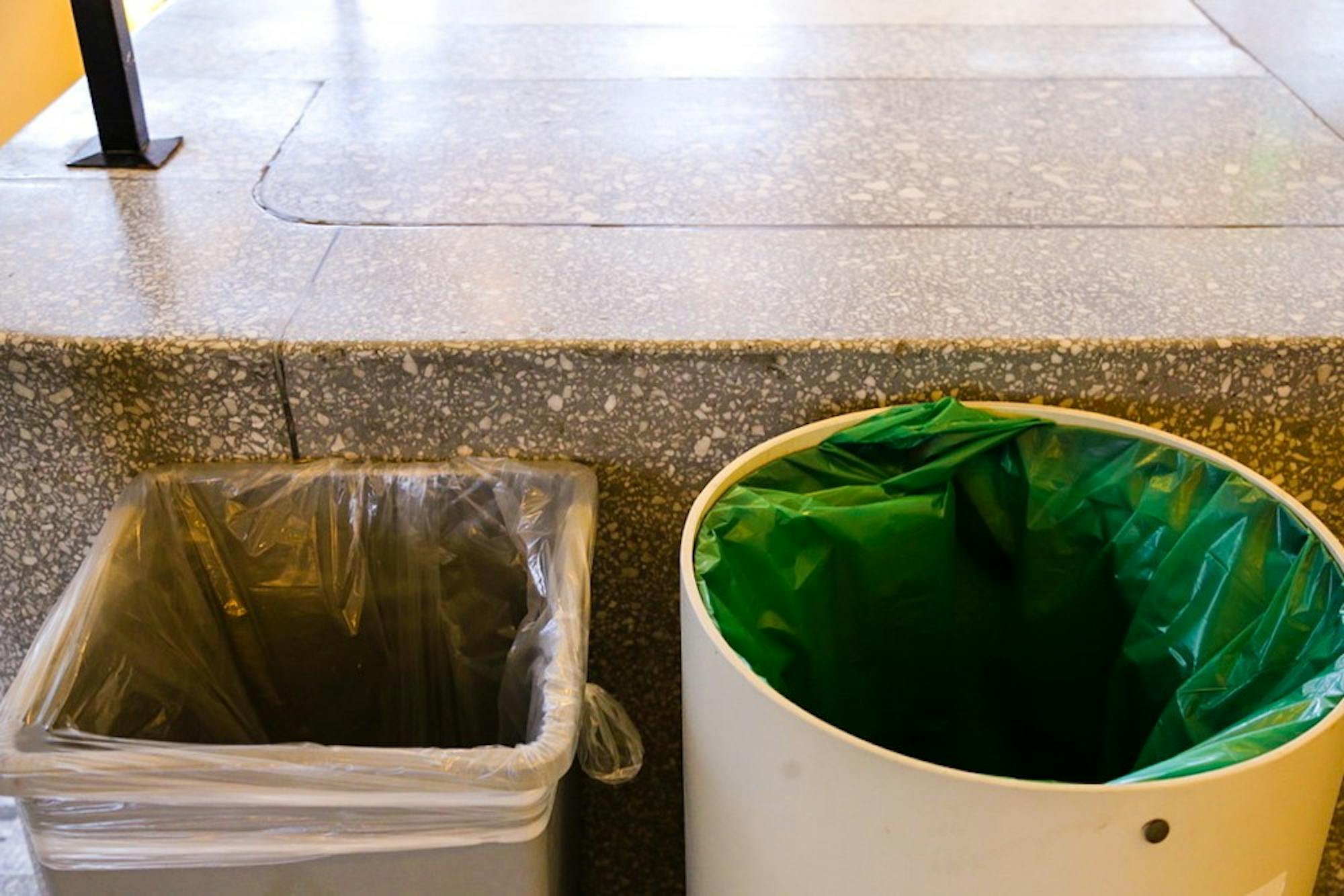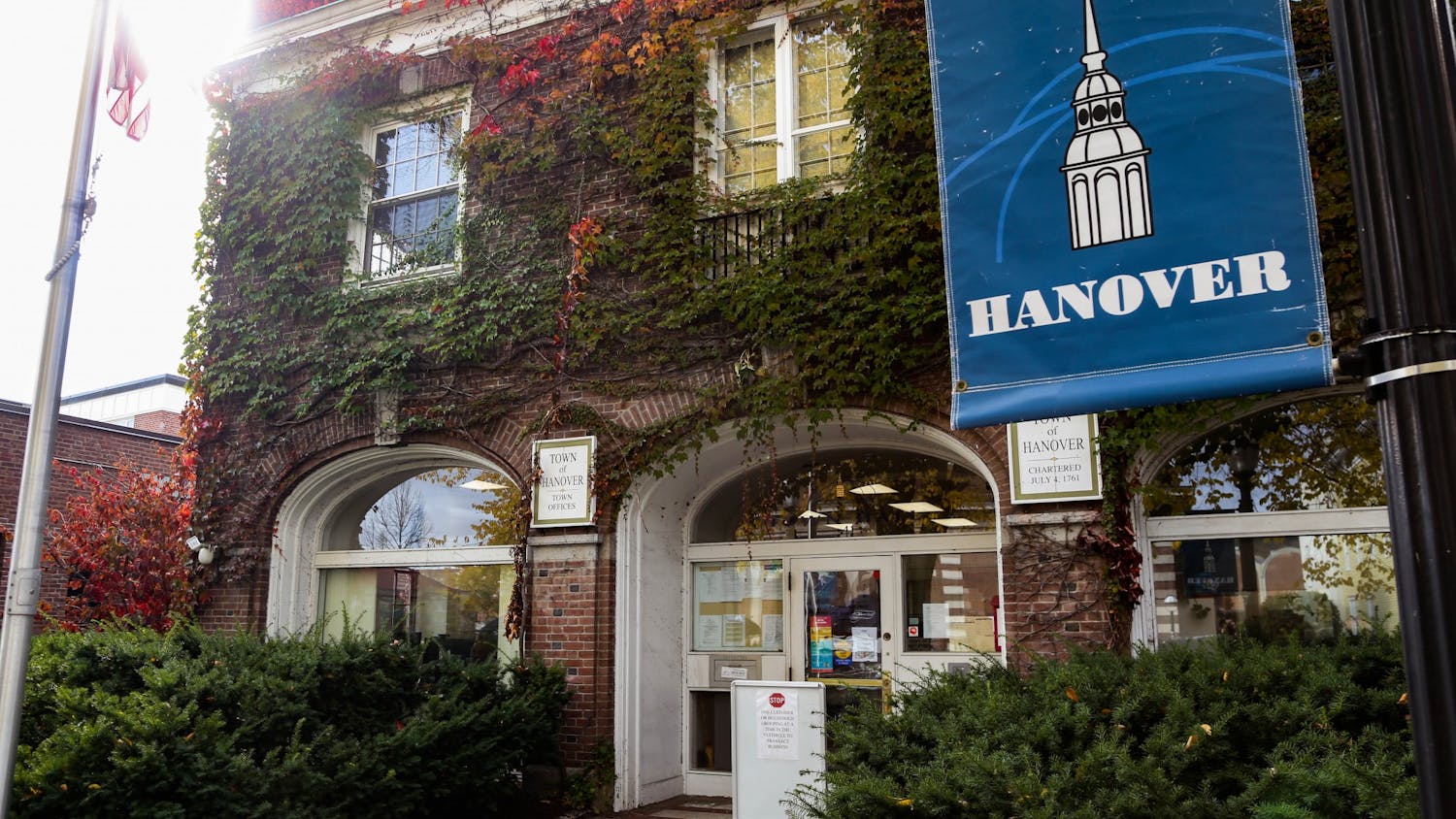Quarantine and regular testing aren’t the only ways in which COVID-19 has disrupted campus operations. In an effort to reduce contamination, recycling has been suspended indefinitely in residence halls on campus, according to Facilities Operations and Management associate vice president Frank Roberts.
Although campus officials from the Sustainability Office and FO&M hope the service will start again soon, recycling has been complicated this term by the high potential for non-recyclable materials to contaminate recycling. The College has produced a record amount of daily paper, plastic and food waste due to quarantine meal measures, Roberts said.
According to Roberts, FO&M personnel have ramped up waste collection from residential buildings to two pickups per day, seven days a week, in an effort to accommodate the increased waste from takeout meals. In the past, the College only collected trash once a day, five days a week.
Roberts said FO&M, in conjunction with the Dartmouth Sustainability Office, made the decision to suspend recycling services due to the concern that a high volume of food intermixed with recyclables would contaminate the waste and make the process impossible. Over their two-week quarantine period, students ate all meals in their rooms and disposed of at least three packed meals a day in residence halls rather than dining spaces.
Recycling will continue in other non-residential facilities on campus, including in libraries and offices. Students may also still recycle cardboard in their residence halls and drop off the plastic bags given with meals for recycling at different meal stations.
Sustainability Office program manager Marcus Welker explained that the zero-sort recycling implemented on campus is often contaminated with a high volume of food in places like Collis Cafe or Novack Cafe. The zero-sort process, which requires only sorting between recyclables and waste without the additional step of separating different materials like glass and plastic, is sensitive to even a small amount of intermixed food waste, according to Welker.
“One person’s actions … can so detrimentally impact that whole bag of recycling and just make it trash,” he said.
Casella Waste Systems, the company the College contracts with to provide recycling services, charges more than twice the standard price for unusable recycling material, according to Welker. The waste then rejoins regular trash on its way to a landfill.
To avoid this, Welker said the College suspended the recycling program altogether. Roberts said his department and the Sustainability Office plan to reevaluate both the volume of trash and the percentage of food waste in trash from residence halls at the end of next week to determine whether the College should restart recycling efforts there. If both are at acceptable levels for the logistics of trash collection and drop off with Casella, then he said recycling might resume in the coming weeks. Welker said that a best-case scenario is that Dartmouth eventually returns to zero-sort and cardboard recycling, as it had done before the COVID-19 pandemic.
Environmental studies professor Andrew Friedland said that the interruption of recycling during quarantine is just one part of a larger downturn in sustainability efforts worldwide due to the infrastructure demands of the pandemic.
“COVID-19 is a disaster for everyone in many ways, but it's also a disaster in terms of sustainability and solid waste recycling,” he said.
Even before the pandemic, Dartmouth was not achieving its waste diversion goals. The “Our Green Future: The Sustainability Road Map for Dartmouth" report set forth by College President Phil Hanlon in 2017 called for 50 percent of landfill waste to be diverted by 2019. According to Welker, only 32 percent of waste from the College was diverted in that year.
The reason for not meeting the report’s goal, he said, came down to a changing global recycled materials market. China, the world’s largest importer of recyclables, stopped taking many types of solid waste in January 2018, which directly affected Casella’s ability to sort and sell recycled material from the College.
Welker also said the zero-sort system promoted a “complacent” view on recycling. He said the system was less effective than originally thought and often allowed people to think they were recycling, when in reality a large portion of the material was shunted to landfills due to contamination.
“We were sold this sort of miracle drug in zero-sort recycling,” he said, “but that’s not true.”
Welker said the College had already begun small pilot programs in multi-sort recycling, in which waste must be separated according to material, before the pandemic hit. If campus returns to recycling this term, however, Roberts said that it will be to Dartmouth’s standard zero-sort process.
Friedland said that students were right to be concerned about the lack of recycling at the moment, but that perspective was important.
“A lot of plastics don't get recycled nowadays anyway,” he said.




